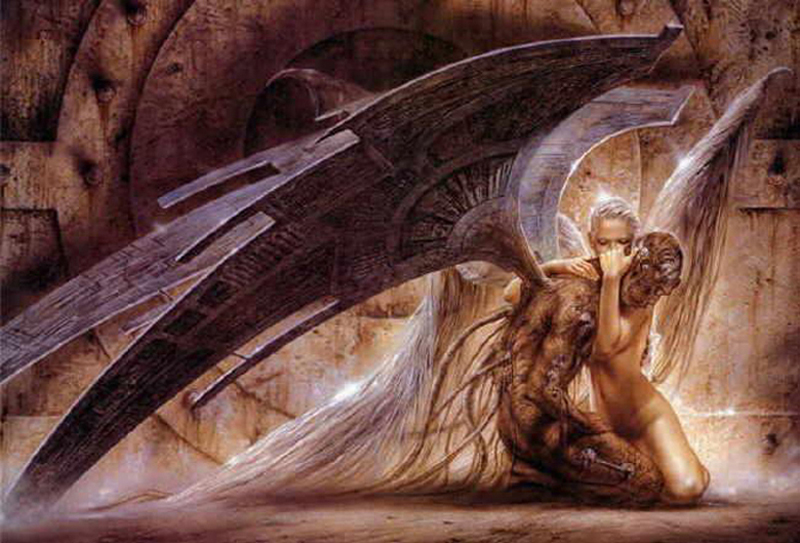What I have learned thus far by participating in discussion groups online is that the very rigid theists are the most averse of knowledge. Not all knowledge, mind you. I speak specifically of the knowledge gained in an honest and deliberate quest for better understanding the universe and our place in.
What has made me most certain of this is the recent almost orchestrated (although I believe it is simply the result of similar thinking) effort to build the “New Atheist” straw man. It helped to illustrate for me that the biggest concern shared among the most vocal theists is “New Atheists.” Why is this such a big concern? To me, it is obvious. “New Atheists” are people like Dawkins and Harris and Dennet and PZ Meyers. People who are deeply involved in an active quest for gaining true understanding of the universe and our place in it. People very active in the quest for knowledge.
- Dawkins is a renown biologist and writer
- Harris is a renown neurologist and writer
- Dennet is a renown philosopher, cognitive scientist, and writer
- PZ Meyers is a renown biologist, blogger, and winner of Humanist Awards
These people are not only very vocal in their concerns of how religion is taking an active role in impeding the quest for knowledge, they are authorities in their respective fields. They are award winners and when they speak, the members of entire fields of knowledge listen… and then some.
The religious intolerance noted by these well-informed men is not the bad-mouthing of a few frustrated people, angry at the world for reasons not quite understood. The intolerance they speak of is real and alive and invasive. It is an intolerance as old as the religions that manifest it. Today the intolerant people cannot simply quell their frustrations by tying Dawkins to a wheel or putting Harris on a rack. Their hatred cannot be calmed by affixing labels and then targeting those so labeled for torture, burning, or hanging. Today, they must do things the hard way like using their clout to change public policy so as to marginalize all competing ideologies. And they must also use the same tools as their nemesis – knowledge. Knowledge in a very different world than the one their religions were founded in.
My eyes have seen the coming of a new theist. A theist who is so ingrained with religious doctrine, so fearful of the impending danger of new knowledge, and so aware of the constraints of today’s laws that prevent them from repeating the same tried and true methods of silencing atheists as in the past. A new theist who has come to grips with the fact that knowledge must be fought with knowledge this time as the playing field has leveled.
My eyes have seen the coming of a new theist. A theist who seeks to understand philosophy and science so as to use these skills and this knowledge in an effort to fortify their position and to discredit that of their ideological opponents. A new theist who has had to come to grips with the fact that the internet, the greatest storehouse of all the knowledge threatening their ideals and their way of life, is also the realm where the clash of ideas must take place. And they use this philosophy and they deny this science and they construct enormous straw men and release vast schools of red herrings into the digital abyss and they get nowhere.
And it’s no wonder why. They are constrained by the very dogma that has induced their great intolerance. They cannot use scientific discovery that conflicts with their doctrine. They cannot improve upon the tired arguments long abandoned by great theist minds of the past. They are stuck moving their argument to same realm of philosophy where there exists alternative existences and things deemed necessary that have no necessity outside of philosophy. In all the brain power focused on the single goal of animating imaginary beings, they have not moved one step further from teetering on that precarious line drawn between reality and imagination. The same line that Unicorns and Gnomes and Fairies walk. Their God remains an unproven concept. A concept that has tremendous power as a thought but is impotent outside the confines of human brain matter.
At the end of the day, even the most well-restrained theists break down and resort to tirades of ad hominem in fits of frustration. And this is quite understandable. As for many of them, there is no choice. They cannot simply join the side of reason and move past all of this unpleasantness. They were corrupted by myths at a very early age. The myths have become one with their identities. To defend these myths is to defend their very being. This place is not a place they chose to be. But none-the-less, there they are. This is not to say that myths are bad things as they teach us great lessons. But to accept myth as literal truth rather to to learn from the story is a corruption of human thought. Especially when myths are the basis of an entire world view. If theists were to accept that some of the myths they previously held to be true were indeed false now that we know better, it wouldn’t be so bad for them – or us. If their religion encouraged them to move forward and to continue to embrace those elements of their doctrine that withstand the test of time, I doubt anyone would have any concern. But their religion doesn’t allow for these things. It is dogma. And so they are stuck with it. And so are we. And the tired broken record skips and skips and skips as they repeat the same failed arguments over and over and over…
What I have learned so far is that the biggest problem with the three most invasive forms of theism: Judaism; Islam; and Christianity is not the verses in their dogmatic doctrine that give licence to their God being indifferent to suffering. The biggest problem with their religion is not the verses in their dogmatic doctrine that undermine the rights of women and other groups of people. The biggest problem with their religion is not even the insatiable thirst for ending all life on this planet in exchange for a glorious fictional Disney-like afterlife. I have learned that the biggest problem with their religion is this:
1) Describing morality and our world by means of a finite ancient construct of human imagination.
2) The inability to transcend beyond 1).
In a nutshell, theists claim to “transcend” all moral codes and knowledge that conflict with their finite set of ancient beliefs. Therefore they DESCEND each time our collective morality improves or useful knowledge is gained. They claim that without a supreme being to give us a purpose and moral guidance, there can be neither. But this is clearly a very limited view of both purpose and morality. Knowing that we are made of matter, for example, does not automatically cause a moral regression to the level of the individual material components. We are still humans and our purpose here is not about what we are made of but rather who we are and what contributions we make to improving conditions for this rare and amazing state matter has managed to become. This concept of purpose is sadly beyond understanding for those who were programmed to believe our purpose is to serve our arrogance. And by this arrogance, not only do we have all the answers, we also have exclusive access to a supreme being that will punish us eternally for not participating in this crippling brand of arrogant thinking.
What I have learned in my hundreds of hours discussing and debating and sharing knowledge online is that arrogance is one of the biggest problem with theism. Theism is the active application of arrogance as the principal component used to build a world view as barbaric as can expected given its origins.







What did you think of this article?